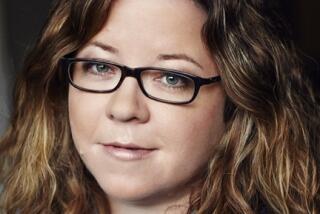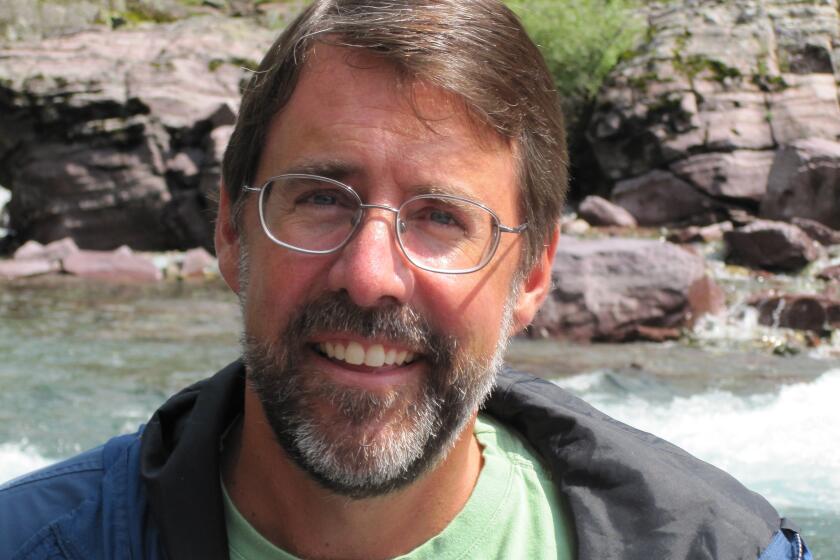Op-Ed: Before I wrote the screenplay for âMurder on the Orient Express,â I hated Agatha Christie
Iâve been asked in multiple interviews what my relationship to Agatha Christie was before writing the adaptation of âMurder on the Orient Express,â and Iâve evaded the question or outright lied every time. The reason is: Because I hated her.
Not her books, but her.
The family lore goes like this:
When I was five, my father brought home a brand new VCR. The first VHS tape he rented, to our giddy admiration, was the 1978 adaptation of Agatha Christieâs classic âDeath on the Nile.â Friends and family came over for popcorn and crowded onto the couch. It was a top-loading VCR, size of a suitcase, price of a suitcase filled with cocaine.
The machine worked, the film played and everyone loved it. Everyone laughed and jumped at the right moments and cooed at the gorgeous stars and wardrobe â everyone except me, who did not love it, or laugh, but rather cried, utterly terrified.
I still need a vampire, or warrior, or wizard, or robot, or alien to metabolize the idea of evil.
That night, I demanded to sleep in my parentsâ bed, where, beset by clockwork nightmares, I continued to sleep for two years. I obstructed their sleep and sex life so thoroughly that my eventual younger sister was born seven years after me, in 1980, instead of five. (When my dad tells the story it was three years and he had to sleep on the floor.)
I didnât blame the director, John Guillermin, or Peter Ustinov, who played the great detective Hercule Poirot, nor even Mia Farrow, whose lethal jealousy especially affected me. I blamed Christie, and I hated her for decades. I called her names I didnât entirely understand. I used the words I had learned listening to the older kids.
âWhy would anyone write a story so terrible?â âWhy would anyone like her stupid books?â âWhat the [obscenity] is wrong with her brain?â
On that fateful popcorn night, my parents had thought nothing of letting me watch the relatively tame âDeath on the Nile.â Iâd seen âDawn of the Dead,â after all, and they couldnât understand why a movie with so little blood â and it wasnât even blood, but nail polish â hit me so hard. Although I couldnât explain my reaction then, I can now.
Theoretically scarier movies with monsters were cartoonish, exaggerated, whereas Christieâs characters were ordinary humans. They had human motives and limitations, and they did terrible things. The film didnât have a protective layer of genre. Perhaps if Ustinov had worn a more flamboyant mustache I would have felt at ease. But he didnât, and I didnât.
âDeath on the Nileâ taught me that good people could be hurt or killed on purpose by other, not-so-good people. Christie introduced me to the simple fact of murder. She made me see the world was not as benign as I had believed.
Even today, as an adult, I can handle any content in any genre except true crime. The most savage episode of âGame of Thronesâ gives me endless joy; a teaser of âLaw and Order: SVUâ leaves me with enduring panic. I still need a vampire, or warrior, or wizard, or robot, or alien to metabolize the idea of evil.
(I have to take a moment to recognize that my son, now about the age I was when I saw âDeath on the Nile,â is petrified of movies and refuses to watch a single one. As if he knows there are dark things he doesnât yet know and if he watches long enough heâll learn them.)
*
Writers ache for control over an uncontrollable creative process. We create private rituals of repetition and routine, like the gambler who remembers her ankleâs position when she split the 8s and hit twice to 21 â and sets her foot just so when the next cards are dealt. We send the email with draft attached at odd or even minutes on the clock (it must be even). Itâs all wishful thinking, of course. We are subject to chaotic fluctuations in temperament and industry, and nothing we do can make certain any outcome.
We can, however, control our subjects. So it was surprising to me that when one of the âMurder on the Orient Expressâ producers asked if I was interested in writing the screenplay, I heard myself yell yes. But is it really so strange that I chose to wrestle with a story whose author had traumatized me? By doing so, I would have the opportunity, as an adult, to control my fears through my art.
The part of âMurder on the Orient Expressâ I sought most to unpack was the ugly deformation of the soul required to take up the knife, even to kill a killer. Writing the film, internalizing Christieâs ingenious structure, working through the math of motive and opportunity for 12 suspects (13, actually, counting the conductor), I had to channel Christieâs truth daily: This is something people do.
Although that truth still terrifies me, I no longer hate Christie for having revealed it. Quite the opposite. I admire her honesty and her craft and her humor and her intelligence and her love of day drinking; I admire her career and the tenacious work ethic it demanded; I admire the life she lived and the legacy she left behind. I come to her novels with as much respect as I leave with joy.
Everyone involved with our present take on âMurder on the Orient Expressâ hoped that, in success, there would be another Hercule Poirot film to follow, another of Christieâs classics to adapt.
No one else knew for certain which it would be. I did.
Michael Green is a producer and screenwriter. His writing credits include âLogan,â âBlade Runner 2049â and âMurder on the Orient Express.â He is currently adapting âDeath on the Nile.â
Follow the Opinion section on Twitter @latimesopinion or Facebook
More to Read
A cure for the common opinion
Get thought-provoking perspectives with our weekly newsletter.
You may occasionally receive promotional content from the Los Angeles Times.










